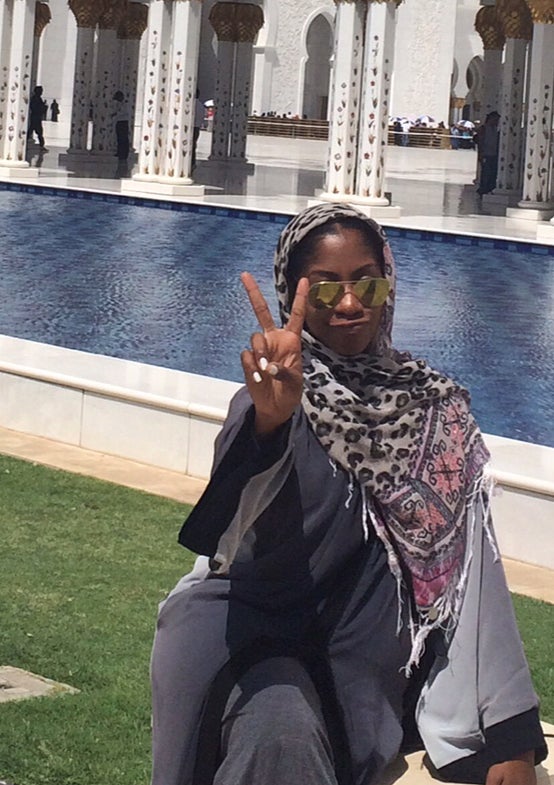
“Ramadan is coming!” This popular quote characterized the anxieties and uncertainties that I felt about experiencing my first Ramadan abroad after moving to the United Arab Emirates more than four years ago. Those feelings have definitely subsided as I experience my fourth Ramadan season as a U.S. expat educator living abroad in Abu Dhabi.
Celebrating Ramadan is one of the most eye-opening cultural experiences I’ve had the opportunity to witness. This religious holiday depends on the phases of the moon, and is a time that Muslims worldwide look forward to. Although I’m not a Muslim and do not consider myself an expert on Ramadan, I’ve learned a lot about it while living in a Muslim country and feel like there’s a lot I can share about this religious holiday.
The Ramadan Real:
Ramadan is a period of intense religious and personal reflection and charitable acts
During Ramadan season, Muslims are expected to not only refrain from eating and drinking between sunrise and sunset, but also reflect on their spiritual paths and strengthen their faith by reciting the Holy Quran and praying throughout the day. Acts of charity and kindness towards all are also equally important during the Ramadan season. Here in the UAE, charitable foundations like the Red Crescent Society create care packages for laborers who may be away from their families and many Muslim families will extend invitations for all to break fast during the “Iftar” evening meal as an act of charity and kindness.
Fasting is not just about limiting food intake
Yes, eating and drinking during the day are prohibited in public, but those fasting also are aware of distasteful activities that could “break” their fast, meaning interrupt their fasting period, which would then be considered to be of no merit. That means refraining from gossip, illicit music and even television shows. As an expat that could also means being mindful of your daily interactions with those fasting as a sign of respect and courtesy. Although not considered unlawful, Ramadan is not the time to break out your vintage denim cutoffs to run to the mall or to openly discuss your views about the last episode of your guilty pleasure show.
Unlawful
In the UAE it is considered unlawful to eat, drink or even chew gum in public places, like malls, during Ramadan. This is difficult considering temperatures during the summer months rise way above 100 degrees Fahrenheit and people here carry water bottles like the newest accessory. However, there are some exceptions to the law.
Everyone eats!
Expats. Locals. Muslims. Non-Muslims. Women. Men. Children. We ALL eat during Ramadan. The misconception that everyone living in the Middle East fasts is completely false. Non-Muslims, women menstruating, young children, people with medical needs like diabetics are “free” to eat and drink during the day. Personally, during the workday I eat in a separate room than where my fasting coworkers are, out of courtesy and respect. Additionally, some restaurants are open during the day for delivery or even dine-in, providing privacy curtains or window shades. Lastly, fasting Muslims eat twice a day, at “Suhoor,” an early morning breakfast before sunrise and during “Iftar,” an evening meal after sunset and definitely accept the invitation if you are invited to either as it is a time for friendship and fellowship.
ESSENCE Black Girl Magic Episode 2 Introduces Us to Black Muslim Teen Ammarah Haynes
Ramadan is for all
All people are welcomed to fast during Ramadan. After living here for some time and gaining friends of different cultures and faith, I attempted to fast. My faithful fast of 1.5 days pales in comparison to the four weeks of fasting that Muslims experience. The food part wasn’t as difficult as the thirst. Although my fast didn’t last long, I grew an even deeper appreciation for the sacrifices of those around me. Also, some people use Ramadan as a time to be healthier physically and mentally by taking social media fasts, fasting from unhealthy food, and from unhealthy habits like using tobacco.
The show must go on
During Ramadan, life still happens. Most businesses close mid-day in observation of the holiday, but there are many that are still open during regular work hours, with fasting and non-fasting employees. For schools and government entities, we have a modified work schedule but we are still expected to show up and show out. As a courtesy, malls, banks, restaurants and other public places also keep reverse hours, where they may open from 9 am until noon and then again from 5 pm until 1 am.
Finally, regardless of the changes that are made to accommodate those who are fasting, I have found that the affect that the Holy Month of Ramadan has on my daily life is minimal. If I was DJ Khaled, I would say that a “major key” to experiencing life in the Middle East during Ramadan is discretion. This word tends to have a negative connotation but in this context it simply means considering those around you and realizing you are a small part of a larger whole. Ramadan greatly impacts me to take part in reflecting on my spiritual faith and inspires me to make improvements to my daily life and interactions with others. Ramadan is a strong example of how our differences can inspire deeper connections and open our eyes to the world around us, whether you are in the U.S. or abroad.
Kendra Gray is a writer and educator currently living in Abu Dhabi. Follow her musings on her blog.
